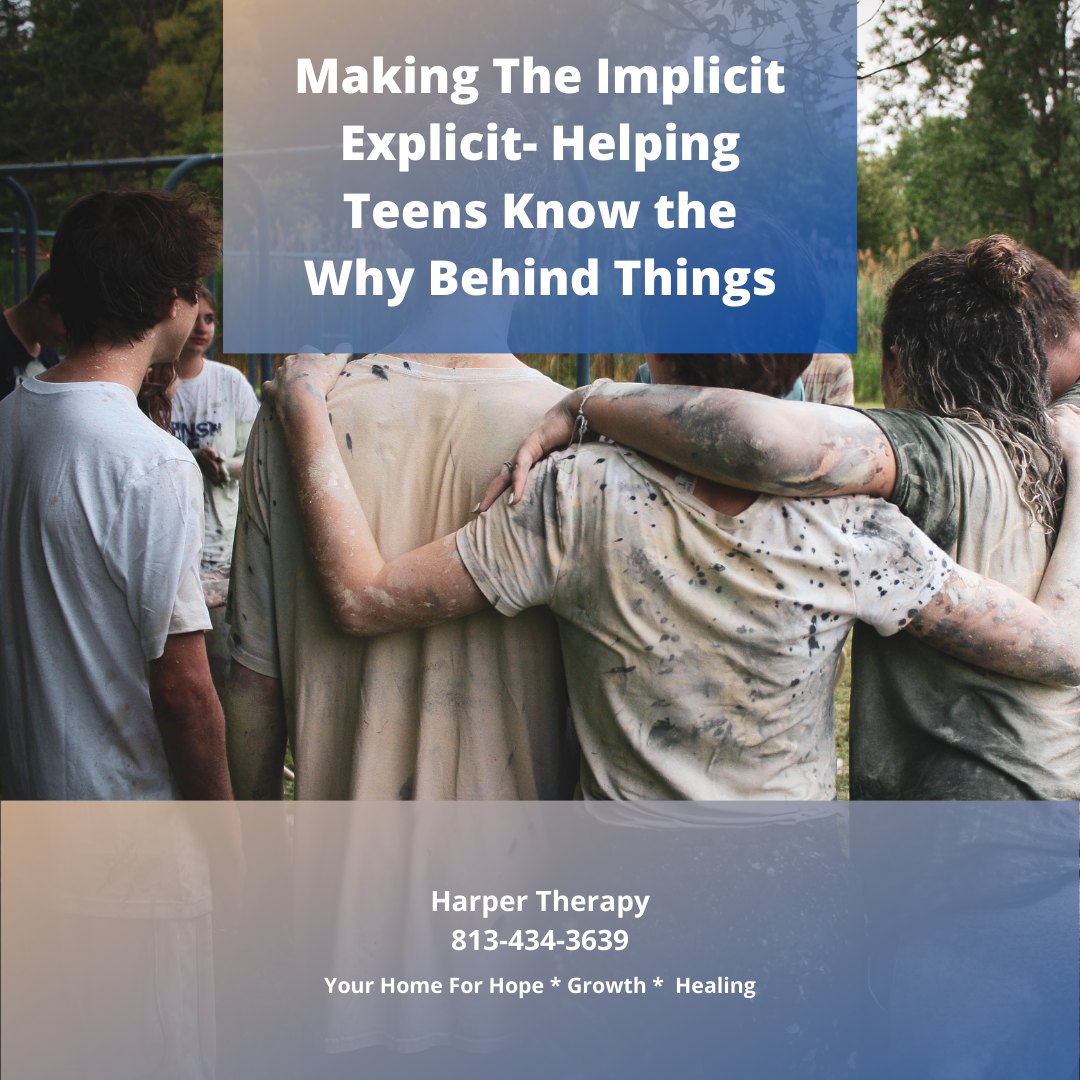Making the Implicit Explicit- Helping Teens Know the Why Behind Things
Somehow, I always find myself working with teens...Early on in my career, I wound up becoming an advocate for teens as a case manager for the Department of Children and Families. They called me a“teen specialist” where I worked with older teens that were looking to age out of foster care and needed help with independent living. I remember getting a call one day that one of my teens wouldn’t get up for school and once I got her talking, it was because she had a dream about her mother (who we hadn't been able to find for several months). I argued in court once (against my supervisor) that my teen should be allowed to go home to his mother, whose rights had been terminated when he was little. Teens trusted me. Maybe because I looked like I was close to their age, or maybe because I cursed like a sailor but primarily, I think it was the mutual respect I gave them. They knew what I expected of them and I tried my hardest to meet their expectations. If I couldn’t, I was honest about my shortcomings.
During my time as a case manager I read the book 3 Little Words by Ashley Rhodes Courter. She was a foster kid in Hillsborough county many years ago. In the book she talks about her experience as a foster child, and how at the age of 3 years old she wishes case managers would have explained things to her. Imagine, if a 3 year old feels this way, how much a teen just wants to understand what is going on.
As a parent all we want to do is protect our kids. We assume that they can’t handle the truth about things, and we cover it up or we don’t give specifics. If you tell your kid they need to show responsibility, but don’t define what that means, how do they meet that expectation? If they can’t actually meet your expectations, how can they trust your word? Can you see that cycle? If you get upset with them, talk to them about it. Even if you are in the wrong. This models accountability for our kids. Your family can define trust and discuss what that means to each of you. I love starting family sessions with Brene Browns definition of trust using the BRAVING acronym. This is a great start to making the implicit explicit. We assume that everyone just knows the definition of trust. Or why honesty is a big deal. The more open we are with our kids, the better understanding they will have.
Brene Browns Definition of Trust:
Boundaries
Reliability
Accountability
Vault
Integrity
Non Judgement
Generosity
At Harper Therapy, we can help you have those hard conversations that will start building trust and honesty back into your relationship with your teen. Give us a call today at 813-434-3639.

